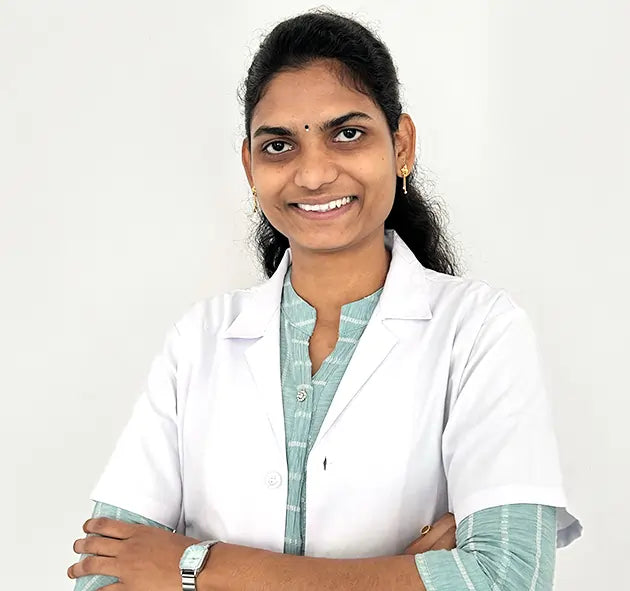PCOD is a syndrome that includes ovarian cysts and hormonal imbalances, while PCO simply refers to the condition of having cysts without causing hormonal issues.
Did you know 26% of women all over the globe can be affected by a condition linked to their ovaries? This is a fact: Polycystic Ovarian Syndrome (PCOS) and Polycystic Ovarian Disease (PCOD) are two popular endocrine diseases that affect a lot of women. Although their names are often used interchangeably, understanding the difference between PCOD and PCOS is crucial for effective management and treatment. PCOD, although hormonal imbalances are involved, typically tells the situation of an abundance of cysts on the ovaries, which may disarray the menstrual cycles as well as infertility.
PCOS is a very complicated and all-inclusive syndrome that is typically marked by hormonal imbalances, insulin resistance, and a host of other symptoms like weight gain, acne, and excessive hair growth. Besides, PCOS can also cause some serious long-term health problems, such as diabetes, if not treated properly.
Choosing home remedies, medical treatments, and constant supervision of the patient is fundamental for the healing process. The clear distinction between PCOD and PCOS allows for more targeted interventions, which boosts your confidence that your health is being prioritised and ultimately improves health outcomes for those affected by the condition.
Understanding the differences between PCOD and PCOS is essential for managig your health effectively. By reading more, you can learn how to address and treat these conditions.
Difference Between PCOD and PCOS
Polycystic Ovary Disease (PCOD) and Polycystic Ovary Syndrome (PCOS) are often considered synonyms, which is why these two terms can be misleading as they refer to two distinctly different conditions with their own character traits and treatment methods. Promoting the right understanding of PCOD and PCOS is the first step towards proper treatment and health promotion.
What is PCOD and PCOS?
Polycystic Ovarian Disease (PCOD)
PCOD is an illness when the ovaries are filled with many cysts. In PCOD, hormonal imbalances can result in irregular menstrual cycles, potentially leading to fertility challenges. This condition affects about 5 to 15% of women and is primarily caused by hormonal imbalances that result in cyst formation on the ovaries.
Unlike PCOS, PCOD is often seen as a less severe condition, which is mainly characterised by the presence of these cysts. PCOD is a disease that is very common and can be easily treated by making some lifestyle changes, diet modification, and taking some medicines. Thus, there is hope for those affected.
In PCOD, hormonal imbalances can lead to irregular menstrual cycles, which might cause fertility issues. The cysts themselves might not always cause no symptoms at all, however, when they do, the symptoms might include symptoms like weight gain, hair loss, and acne. In many cases, PCOD does not lead to long-term health complications if appropriately managed.
Is it possible for a woman with PCOD to conceive?
Women with PCOD can still get pregnant, but irregular ovulation may cause delays. They also face a higher risk of pregnancy complications such as endometrial cancer.
Polycystic Ovary Syndrome (PCOS)
PCOS is a more severe and complex condition compared to PCOD. PCOS is a hormonal disorder that disrupts the normal functioning of the ovaries. Irregular or prolonged menstrual cycles, an excess of male hormones (androgens), and multiple tiny cysts in the ovaries are the main symptoms. This syndrome affects approximately 6-26% of women worldwide, and in India, the prevalence rates are between 3.7 and 22.5 percent, depending on the study.
It is not only about the presence of ovarian cysts but also includes the more extensive metabolic and hormonal disturbances. PCOS in women usually comes with insulin resistance, excess amount of androgens, and an increased risk of severe health problems like type 2 diabetes and cardiovascular disease, as well as uterus cancer. It usually takes a more comprehensive approach, including medication, diet modifications, lifestyle changes, and sometimes fertility treatments.
Can women with PCOS still get pregnant?
Having PCOS doesn't prevent pregnancy. It's a common but treatable cause of infertility in women. Hormonal imbalance can interfere with egg growth and release, leading to ovulation problems. Pregnant women with PCOS may have a higher risk of miscarriage and stillbirth.
Common Causes Of PCOS & PCOD
PCOD/PCOS is a multifactorial condition caused by a combination of factors: your family history, lifestyle, and genetics. It's not just one factor. Genes and hormonal issues all play a role in developing PCOD/PCOS. To treat this condition effectively, you need to understand these different causes. Apart from these factors, several physiological causes that can increase the risk of PCOD/PCOS are overproduction of insulin, inflammation, and high androgen levels.
Unhealthy Diet
Women with PCOD/PCOS often have a higher intake of high-glycemic index sweets, saturated fats, cheese, and diets rich in carbohydrates and fats while also consuming low-fibre and Western-style diets. These eating habits have been linked to an increased risk of PCOS compared to healthy individuals.
Sedentary Lifestyle
Extended periods of inactivity and insufficient physical exercise can lead to weight gain and metabolic issues in individuals. As a result, an unhealthy lifestyle can increase the likelihood of developing PCOS and the related symptoms of depression.
Genetics
Women with a family history of PCOD are at a higher risk of developing the condition, indicating a strong genetic connection. Specific genes associated with hormone regulation and insulin resistance may heighten the likelihood of experiencing this disorder.
Problems of PCOD/PCOS
- Some people with PCOD/PCOS may have heavy or prolonged periods, also known as menorrhagia, due to hormonal imbalances.
- Irregular or absent periods are common symptoms of PCOD/PCOS. Individuals with PCOS may experience unpredictable or prolonged menstrual cycles, or they may not have periods at all.
- Excess of male hormones, which is common in PCOD/PCOS, can cause symptoms like excess body hair, persistent or severe acne, and thinning or loss of hair in a pattern similar to male baldness (androgenic alopecia).
- PCOS is a leading cause of reproductive issues and difficulty getting pregnant. Ovulation irregularities due to PCOS make it difficult for women to conceive.
- Many women with PCOS struggle with weight management due to hormonal imbalances, which affect glucose storage and processing in the body and lead to weight gain, mainly in the abdominal region.
- Some women with PCOS/PCOD may have changes in skin pigmentation, which may appear as dark patches on areas like the neckline, genital area, and armpits.
- Mild autoimmune conditions can cause low-grade inflammation in the body due to various physiological reasons, which can lead to an increase in androgens. High androgens are associated with acne, skin problems, and an increased risk of cardiovascular diseases.
- Many women with PCOD experience overall well-being issues like mood swings, strained relationships, low self-confidence, negative self-image, disrupted eating and sleeping patterns, and low motivation.
How To Treat?
PCOD Treatment: PCOD management involves lifestyle changes like a balanced diet and exercise. The exact cause of PCOS is still unclear, and treatment focuses on managing symptoms with medication. Birth control pills can help regulate periods and manage symptoms like acne. Other treatments, like ovulation-inducing medications or assisted reproductive technologies, may be considered. For women planning to conceive, fertility treatments may be needed.
PCOS Treatment: It is multifaceted. Lifestyle changes like weight management, a healthy diet, and regular physical activity are key. Medications may include hormonal pills to regulate periods, insulin sensitizers to address insulin resistance, and treatments for symptoms like acne and excess hair growth. For women with fertility issues, specific fertility treatments may be recommended.
The treatment for both PCOD and PCOS primarily focuses on addressing the symptoms. It involves using hormonal medication, insulin regulators, dietary adjustments, and supplements. Home remedies improve insulin sensitivity and balance hormones, thus reducing symptoms and other side effects. This holistic approach complements conventional therapy and is crucial for ensuring the overall well-being of women with PCOS.
For natural remedies for PCOS, check out this effective natural remedies for managing PCOS symptoms. It covers various holistic approaches, including seed cycling, which involves consuming specific seeds during different phases of the menstrual cycle to balance hormones in women with PCOS. It also discusses home remedies like herbal teas, dietary adjustments, and supplements to alleviate symptoms.
Conclusion
Differentiating between PCOD and PCOS is key to management. Early detection and management can significantly impact outcomes. While both have cysts in the ovaries, the causes, symptoms, and health effects are very different. PCOD is challenging but often involves simple hormonal imbalances that can be managed with lifestyle changes and medication. PCOS is a more complex condition that requires a holistic approach as it affects overall health. Knowing the difference allows for customised treatment and overall well-being.
Disclaimer
The information provided is for educational purposes only and is not intended to be a substitute for medical treatment. If you're pregnant, nursing, taking medication, or have a medical condition, it's better to consult a healthcare professional. Ultimate You does not provide any guarantee regarding the accuracy, adequacy, completeness, legality, reliability, or usefulness of the information and disclaims any liability arising from it.

Sai Tirumala Vasireddy
Certified Nutritionist
Holds a master’s degree in Food and Nutritional Sciences and specialised in Applied Nutrition. Passionate about sports nutrition, she focuses on enhancing individual’s performance through customised diet plans and sustainable eating habits. Her expertise and enthusiasm for healthy living make her a valuable resource for those seeking to improve their health and performance.
Tags
Frequently Asked Questions
How can I differentiate between PCOD and PCOS?
PCOD and PCOS share some symptoms, but PCOS involves a more complex array of symptoms, including severe metabolic and hormonal disruptions. Diagnostic tests, such as ultrasounds and blood tests, can help distinguish between the two conditions.
What are the prevalence rates for PCOD and PCOS?
According to NCBI, in India, the prevalence of PCOS varies between 3.7% and 22.5%, depending on the specific population and the diagnostic criteria applied.
What lifestyle changes can help manage PCOD and PCOS?
Eating a balanced diet, staying active, managing stress, and keeping a healthy weight can help in managing both PCOD and PCOS. The specific treatments and lifestyle changes will differ based on individual symptoms and health requirements.
Are there specific treatments for PCOS and PCOD?
Treatment for PCOD involves lifestyle changes, medications to regulate menstrual cycles, and therapies targeting specific symptoms. Ovulation-inducing medications or assisted reproductive technologies may also be considered.
Can PCOD turn into PCOS?
PCOD and PCOS are distinct conditions, but PCOD can progress to PCOS if not properly managed or if symptoms become more severe. Consistent monitoring and treatment can aid in managing symptoms and preventing further progression.
Is PCOD an illness that lasts a lifetime?
PCOS is a chronic illness that can be managed with appropriate medical care, but it is often misdiagnosed and poorly understood.
- Choosing a selection results in a full page refresh.
- Opens in a new window.
15%

on your next order
By submitting your email address, you agree to receive marketing emails from Ultimate You at the email address provided. We may use information collected about you on our site to suggest the products and offers. you can withdraw your consent at any time by following the unsubscribe instructions in any email we send to you. view Terms and Privacy. Contact Ultimate Customer Care at #204-8430 Saint Monica Building, near Char Miner, Hyderabad, India, 203455.






